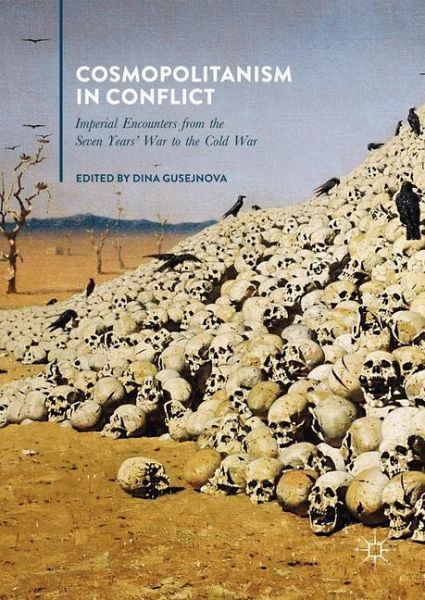
Cosmopolitanism in Conflict
Imperial Encounters from the Seven Years' War to the Cold War
Herausgegeben: Gusejnova, Dina

PAYBACK Punkte
19 °P sammeln!
This book is the first study to engage with the relationship between cosmopolitan political thought and the history of global conflicts. Accompanied by visual material ranging from critical battle painting to the photographic representation of ruins, it showcases established as well as emerging interdisciplinary scholarship in global political thought and cultural history. Touching on the progressive globalization of conflicts between the eighteenth and the twentieth century, including the War of the Spanish Succession, the Seven Years' War, the Napoleonic wars, the two World Wars, as well as ...
This book is the first study to engage with the relationship between cosmopolitan political thought and the history of global conflicts. Accompanied by visual material ranging from critical battle painting to the photographic representation of ruins, it showcases established as well as emerging interdisciplinary scholarship in global political thought and cultural history. Touching on the progressive globalization of conflicts between the eighteenth and the twentieth century, including the War of the Spanish Succession, the Seven Years' War, the Napoleonic wars, the two World Wars, as well as seemingly 'internal' civil wars in eastern Europe's imperial frontiers, it shows how these conflicts produced new zones of cultural contact. The authors build on a rich foundation of unpublished sources drawn from public institutions as well as private archives, allowing them to shed new light on the British, Russian, German, Ottoman, American, and transnational history of international thought and political engagement.














